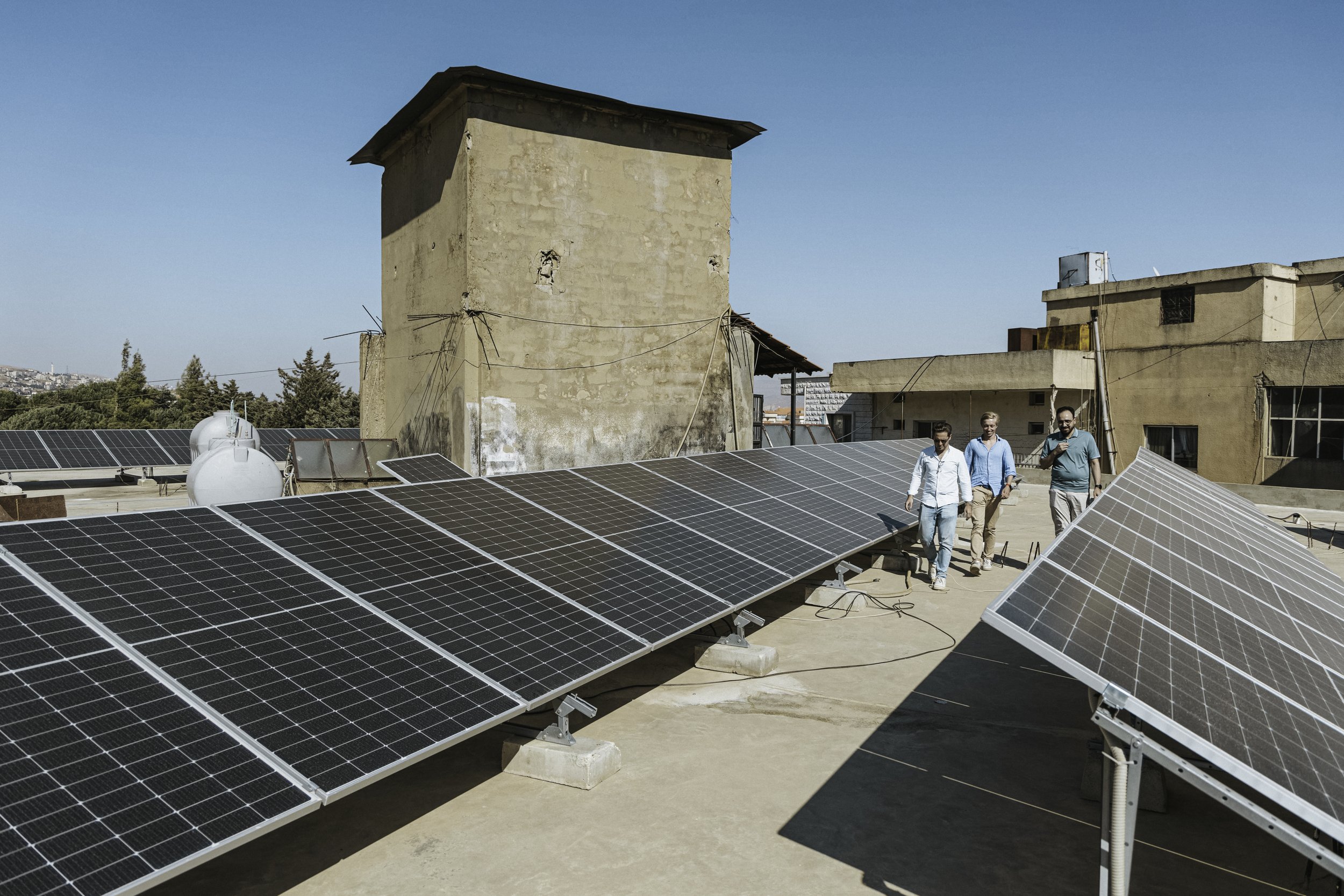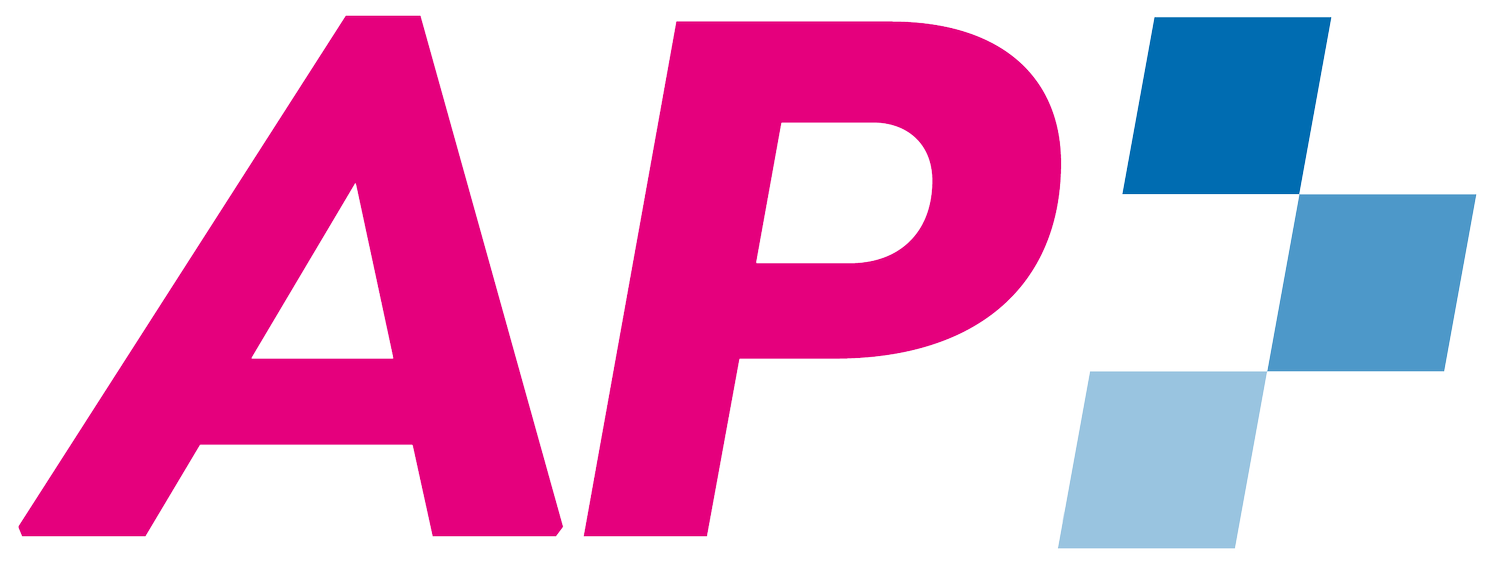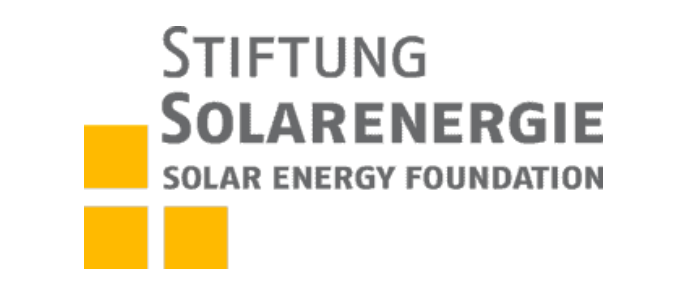
Transformative solar system installations
Aid Pioneers protects the human rights to health and education by installing solar systems for schools and hospitals located in parts of the world without reliable power grids.
Our solar interventions explained in under 5 minutes
In regions reliant on diesel generators, escalating fuel costs threaten the human rights to education and medical care. Our local partners in countries across the Middle East and Africa have only one viable option left: solar power systems. So why aren’t they making the transition?
Watch the video to discover how, together, we can flip the switch for schools and hospitals currently left in the dark.
Understanding the problem
Unsustainable diesel dependencies
When asking our partners in the Middle East and Africa about what stopped them from supporting their communities effectively, we kept getting the same answer: reliable and affordable energy sources when the grid fails or doesn’t exist at all.
Insufficient grids leave vulnerable communities with no choice but to use generators running on polluting and carcinogenic diesel fuel.
What's worse, many hospitals and schools have now reached a breaking point where the cost of diesel is too high for them to treat patients and teach students effectively.
While diesel prices keep rising, the expense of financially and environmentally sustainable solar panels steadily declines with each passing year.
Financial barriers to solar power
Despite this favourable trend, that crucial upfront investment needed to install a solar system, is not attainable for hospitals and schools serving vulnerable communities. The high diesel costs make it near impossible to put any money aside for investing in energy independence. And turning to banks for support in breaking free from diesel dependency, small but impactful organizations are met with closed doors.
The counterintuitive truth is that in the parts of the world with the highest solar potential, you find the least of solar capacity installed.
Photovoltaic Potential vs Solar Capacity Installed
Solar vs Diesel Price Development
The price of solar panels is dropping thanks to improved manufacturing methods, more efficient solar cells, and a global shift towards renewable energy.
Sustainable solar solutions
How we give access to solar power
Through our procurement pipeline, our partner organizations gain access to solar energy at significantly reduced prices. Thanks to our private sector supporters, we can provide solar systems at up to 50% off local procurement prices, coupled with streamlined logistics services.
For local innovators who may struggle to allocate funds for these discounted solar solutions, we extend further assistance through a combination of partial donations and interest-free loans. The loan amount is tailored to our partners' financial capacity, ensuring they can comfortably repay within a two-year timeframe, without exceeding their previous expenses on diesel fuel.
All loan repayments contribute to funding new solar systems, allowing us to recycle donations and spread clean energy to regions where it can make the most impact.
The humanitarian potential of solar energy
Over the course of ten years, donations amounting to 30,000 USD can unlock the following outcomes:
30
kWp installed
250
tons of CO2 saved
20K
more students educated
75K
more patients treated
Partners powered by the sun
We have successfully installed solar panels in Uganda, Ethiopia, and Lebanon, allowing schools and hospitals to stay open and improve the quality of their services.
Discover how clean energy transforms communities by exploring our collaboration with Weema International to power Mudula Hospital with reliable energy.
Our partners
Founded in 2011, WEEMA International partners with rural communities in southwestern Ethiopia to provide access to clean water, quality education, healthcare, and economic opportunities. Their holistic approach focuses on community-led development to ensure sustainable and impactful change.
Solarspar is a Swiss cooperative focused on promoting solar energy through the installation of photovoltaic systems and the advocacy of renewable energy policies. They engage in community projects and offer memberships to individuals interested in supporting sustainable energy solutions.
Enpal is a German company specializing in providing solar energy solutions for homeowners. They offer solar panel systems through flexible rental and purchase options, including additional services like energy storage and electric vehicle charging stations. Enpal's mission is to make renewable energy accessible and affordable for everyone.
FoxESS is a global leader in the development of inverter and energy storage solutions. Their products are designed to deliver the most advanced features to empower energy independence for homeowners and businesses alike. FoxESS combines cutting-edge technology with user-friendly interfaces to optimize energy usage and storage.
The Solar Energy Foundation is a nonprofit organization dedicated to promoting the use of solar energy in developing countries. They focus on providing reliable and sustainable energy solutions to rural and marginalized communities, aiming to improve living conditions and support economic development.
EuroTec is a German-based company with more than 25 years of experience. They specialise in the development, production and distribution of products for the modern construction sector - one of these being solar installations.
Women's Hope International is a Swiss-based organization committed to ensuring that women and girls can lead self-determined and healthy lives. They work with partner organizations in countries like Afghanistan, Ethiopia, Bangladesh, and Chad to improve health services around pregnancy and birth, empower women to claim their rights, and combat gender-based violence.
C&D Clean Energy, a renewable energy supply chain service provider, affiliated to C&D Inc., the member company of C&D Group, a Fortune Global 500 enterprise. Main business field of C&D Clean Energy focuses on high-quality new energy products supply, clean power assets investment, development, construction and operation, and supply chain & industry chain integration value-added service.
Interested in securing health and education for vulnerable communities?
If you would like an in-depth introduction to our financing options and discover ways to invest in our solar projects, we are more than happy to give you a demonstration.
Aid Pioneers’ Managing Directors viewing solar systems in Lebanon .











